
Stay informed.
Scroll for helpful tips, stories, and news.
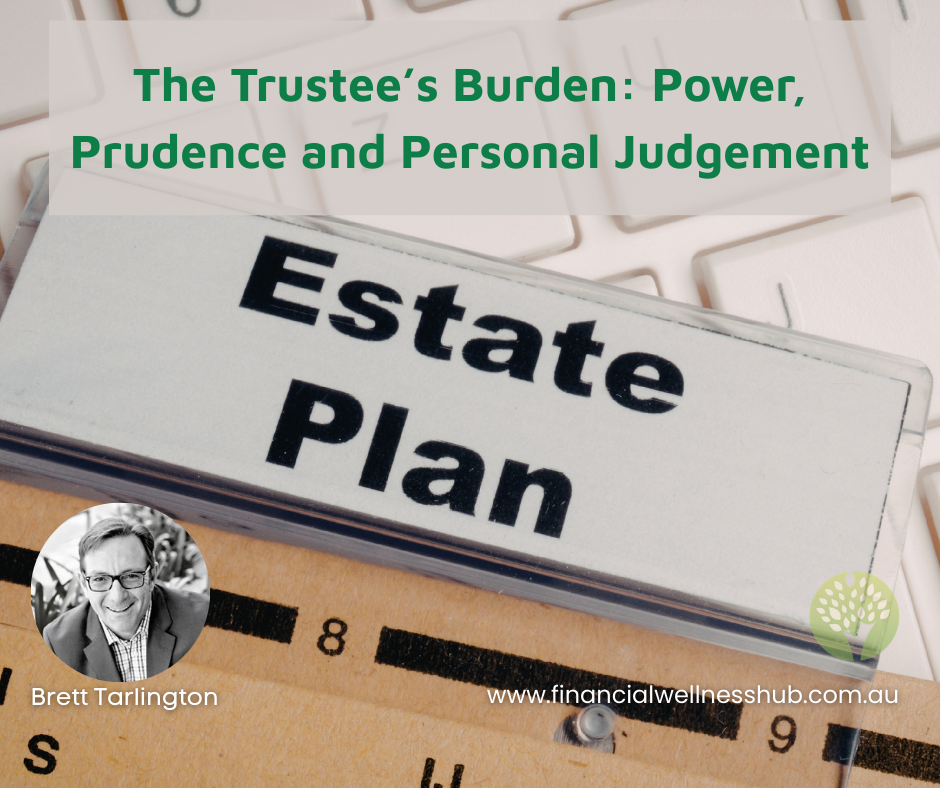
The Trustee’s Burden: Power, Prudence and Personal Judgement
Being named trustee is often seen as an honour.
It is also a responsibility that can feel heavier than many expect.
On paper, trustees hold authority.
In practice, many carry quiet uncertainty.
Because while the legal framework is well defined, the human reality rarely is.
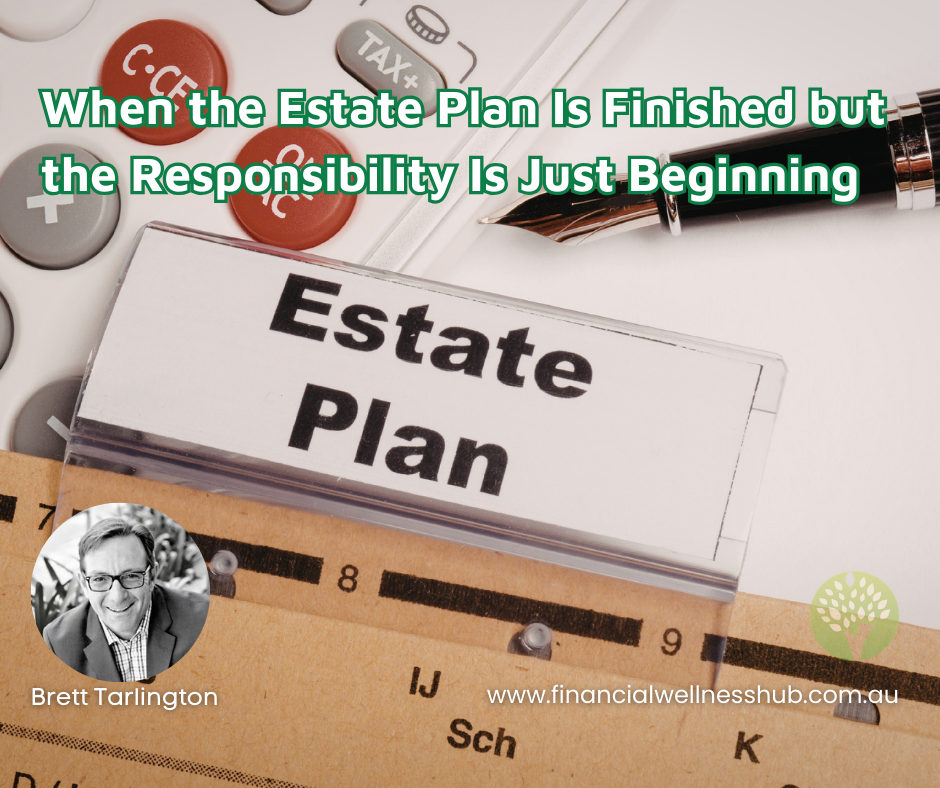
When the Estate Plan Is Finished but the Responsibility Is Just Beginning
There is often a moment of relief when an estate plan is completed.
The will is signed.
The testamentary trust is established.
The documents are stored safely away.
It feels finished.
In truth, it has only just begun.
Because estate planning is about preparation.
Stewardship is about what happens next.

AI, Hype and the Human Factor: Why small, thoughtful adoption may win the long game
The conversation around AI tends to swing wildly.
One week it’s positioned as the thing that will transform everything overnight.
The next, it’s framed as an existential threat to entire professions.
And somewhere in between sits a quieter group of people who are unsure whether to jump in or wait it out.
I’ve found myself listening to all three views over the past year.
In boardrooms, in professional conversations, and in casual chats with people who are simply trying to do good work and stay relevant without losing what makes them valuable.
From what I’ve seen so far, the most useful path rarely sits at either extreme.

AI, Hype and the Human Factor: When do the financial outcomes really arrive?
Over the past twelve months, large organisations have spent extraordinary amounts of money on artificial intelligence.
Boards are briefed.
Executives are reassured.
Strategy decks promise productivity, efficiency, and profitability at scale.
The language is confident. The budgets are large.
But behind closed doors, a quieter question is being asked.
When do the financial outcomes actually show up?
And more bluntly, will we still be around to see them?
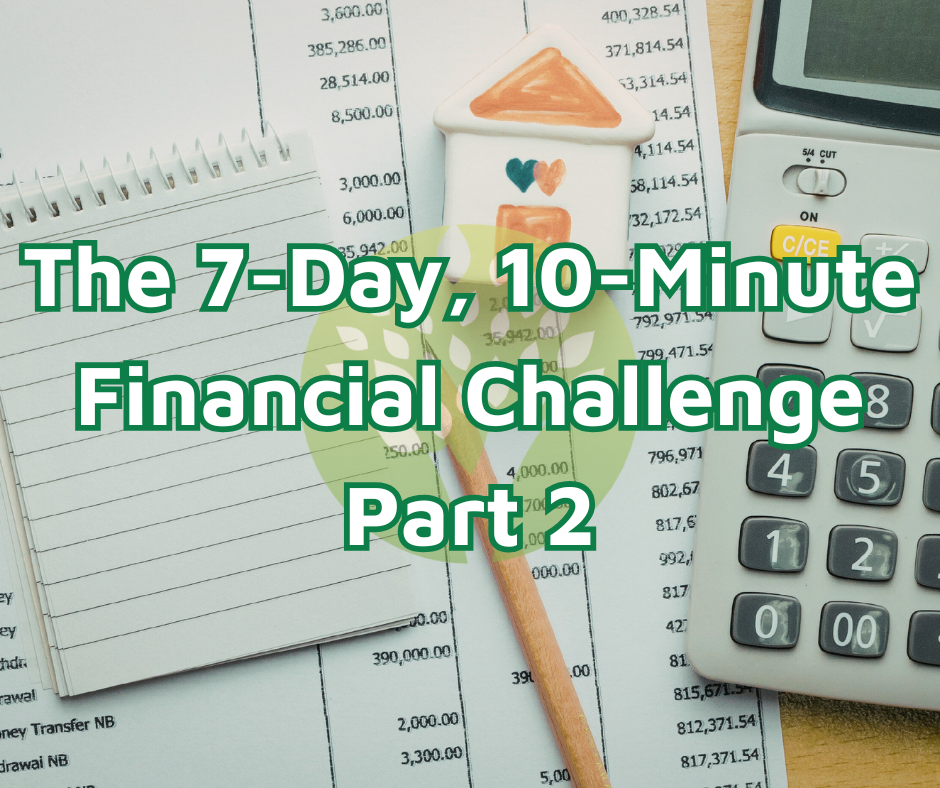
The 7-Day, 10-Minute Financial Challenge Workbook
Financial stress rarely shows up as panic.
More often, it shows up as background noise.
A feeling that money should feel easier by now.
A sense that income has increased, but clarity has not.
A constant mental note to “deal with it later”.
This workbook exists to quiet that noise.
Not by fixing everything at once, but by creating space to think clearly again.
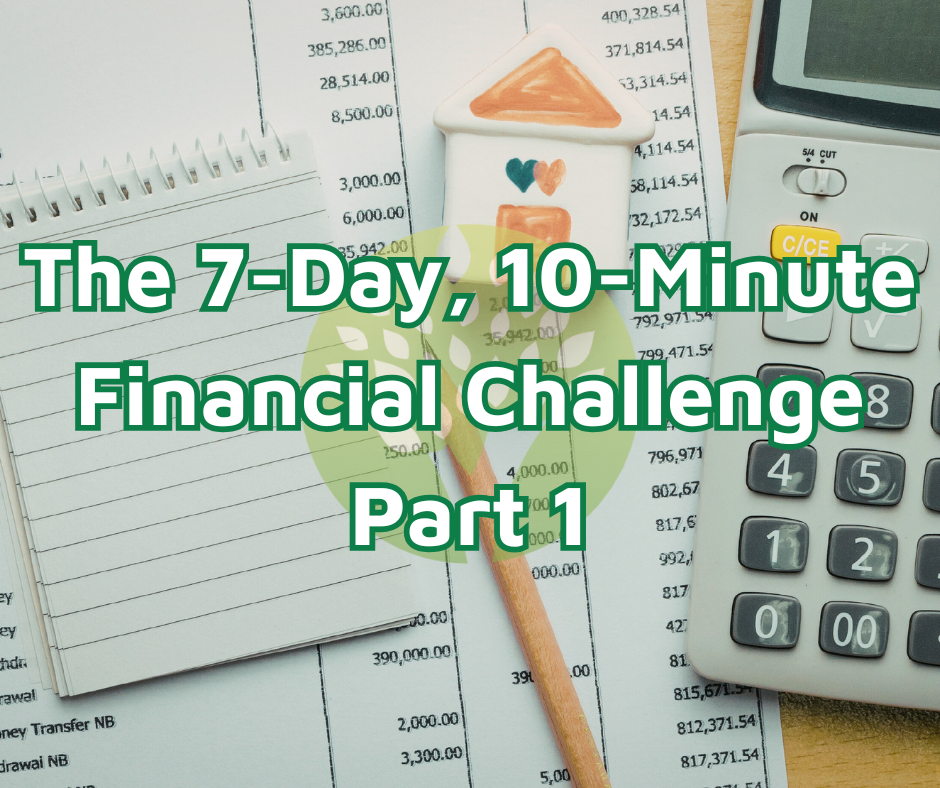
The 7-Day, 10-Minute Financial Challenge
Most people do not wake up one morning and decide to ignore their finances.
It happens gradually.
Income improves, but so does lifestyle.
Spending becomes automated.
Bills get set up once and never reviewed again.
On the surface, everything looks fine. Work is busy. Life is full. Money is moving in and out. There is no obvious crisis, just a quiet sense that things could feel more organised, more intentional, or less reactive.
That feeling is usually the first sign that a reset is needed.
Not because something is broken.
Because things have simply drifted.
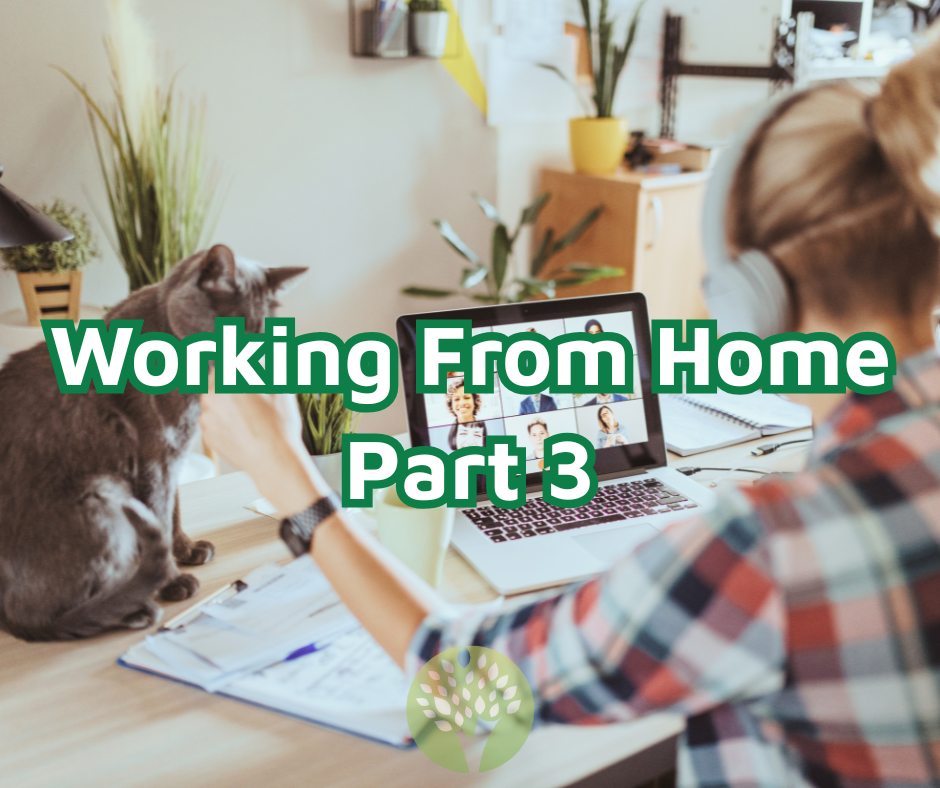
Working From Home: Opportunity Lost: What Working From Home Might Be Costing Your Career and Wellbeing
Some costs never arrive as bills.
They arrive much later, disguised as stalled careers, missed opportunities, or a quiet sense that something is not moving the way it once did.
One of the most underestimated costs of working from home is opportunity loss.
You do not feel it in the moment.
You only recognise it in hindsight.
That delay is what makes it so powerful and so easy to ignore.
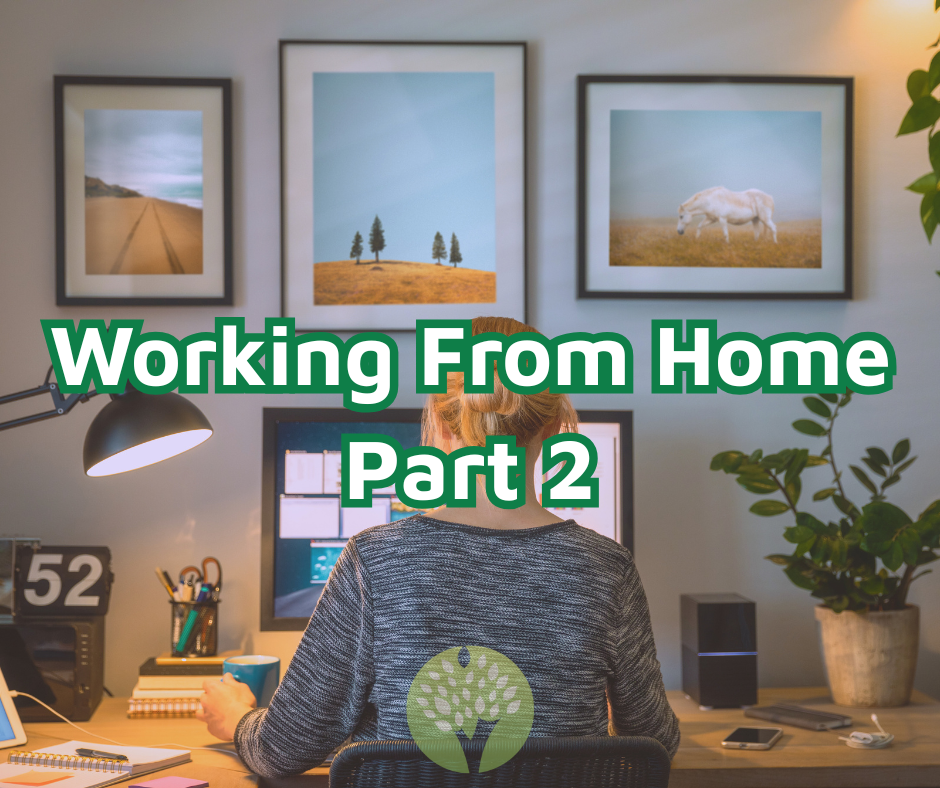
Working From Home: The Hidden Costs of Working From Home: What No One Adds Up Properly
One of the reasons working from home feels financially harmless is because no single cost ever screams for attention.
There is no invoice that lands in your inbox with a neat total.
No monthly statement that forces you to stop and think.
No line item that clearly says this is the price you are paying for flexibility.
There is no bill that reads:
“Work From Home Expenses: $214 this week”.
Instead, it happens quietly.
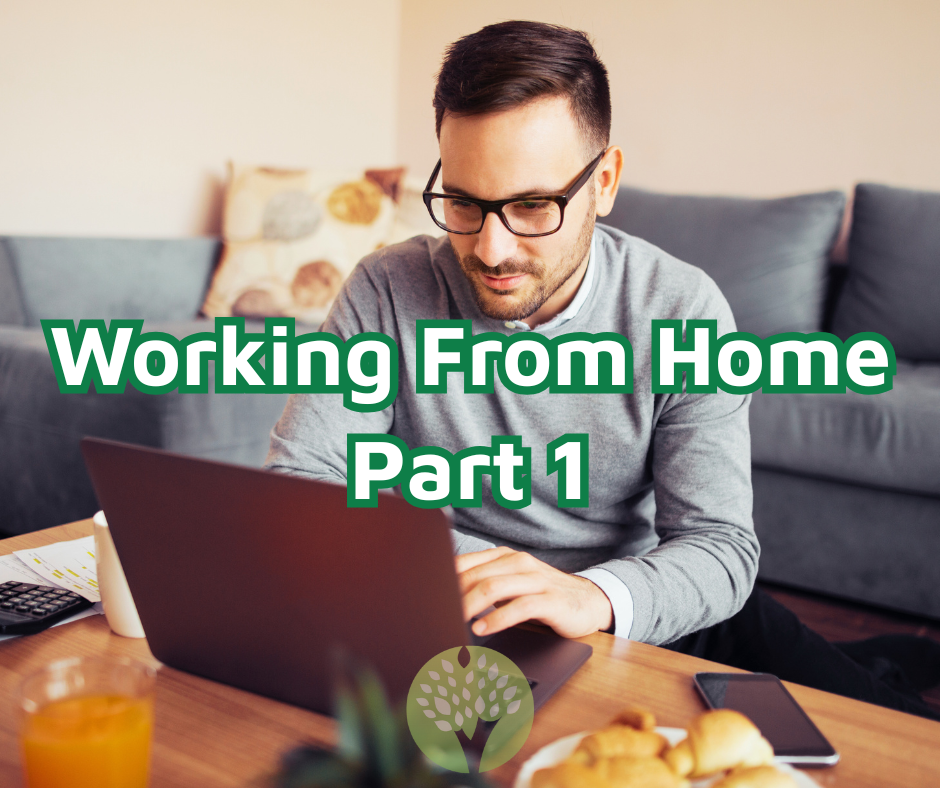
Working From Home: Are You Actually Saving Money or Just Avoiding the Commute?
By the end of the year, most people are tired.
Not just physically tired, but mentally worn down by routines that no longer feel purposeful. The commute. The meetings. The noise. The sense that time keeps getting swallowed up by things that don’t really matter.
So when working from home became mainstream, it felt like relief.
For parents, it felt like survival. No mad rush between school drop-off and traffic. No guilt about being late.
For younger professionals, it felt like freedom. Less structure. Less scrutiny. More control.
For managers, it felt like progress. Flexible teams, fewer complaints, happier staff.
And almost everyone agreed on one thing.
“At least it saves money.”
That assumption is so widely accepted now that very few people ever stop to question it.
I think that’s a mistake.
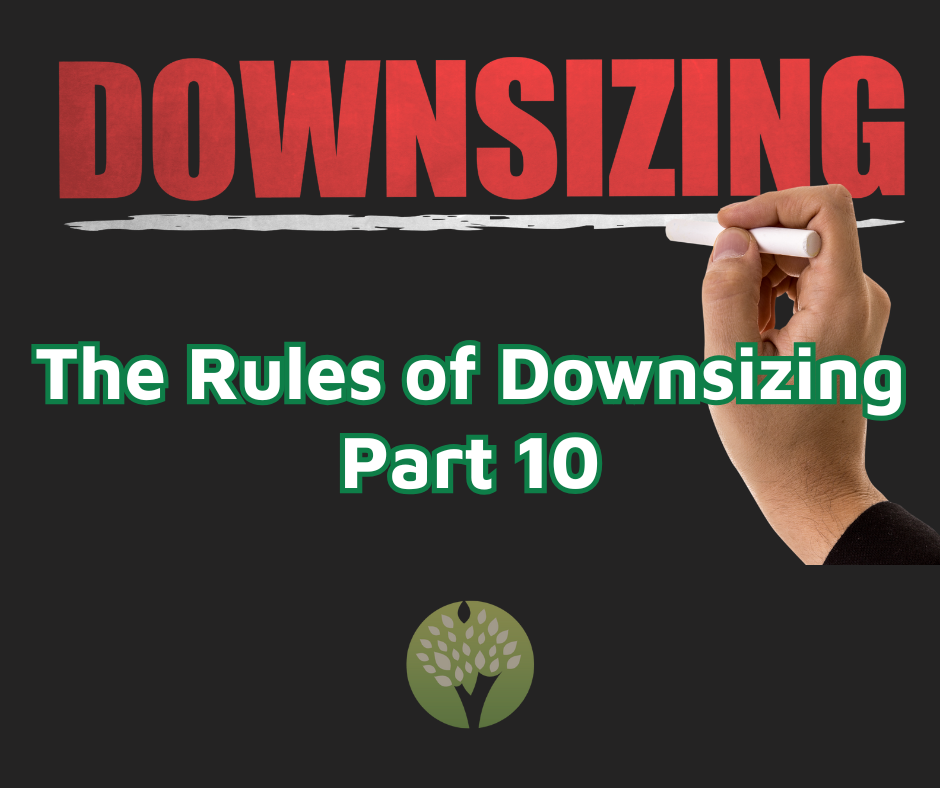
The Rules of Downsizing (Part 10): The Financial Planner’s View: How to Fund Your Next Chapter
After working with clients through downsizing, retirement planning, and major life transitions for many years, I have noticed something important.
Most people spend far more time deciding where they want to live next than how they will actually fund the life they want once they get there.
Choosing the right home matters. But funding your next chapter is what determines whether that move feels freeing or financially stressful.
From a financial planner’s point of view, downsizing is not an end point. It is a financial reset. Done well, it can support lifestyle, security, and peace of mind for years to come. Done poorly, it can quietly create pressure that is hard to unwind later.
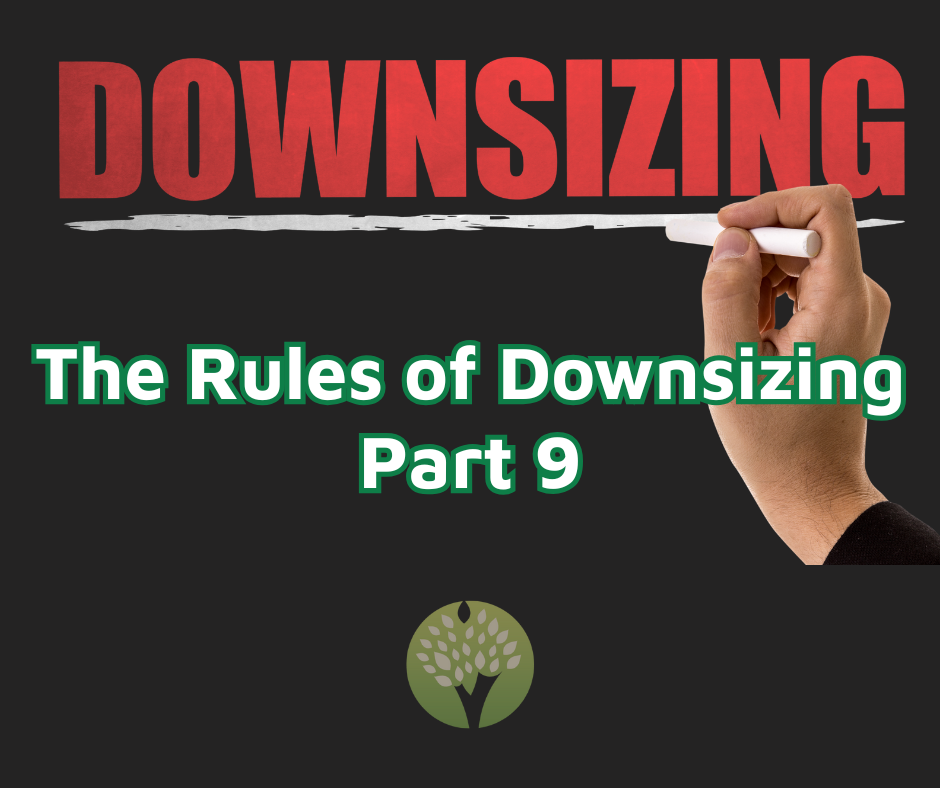
The Rules of Downsizing (Part 9): Regional vs City Living — Where Should You Downsize To?
Whenever I speak with clients about downsizing, the same question comes up sooner or later:
“Should we stay in the city or move somewhere regional?”
It sounds like a simple choice, but it is often one of the biggest decisions people make in later life. It affects lifestyle, finances, social connection, health access, and long-term wellbeing.
Based on years of helping families through this transition, and drawing from your original notes in the downsizing document, here is what I tell clients when they are trying to decide where their next chapter should be.
The right place is not about postcode. It is about the life you want to live from here.
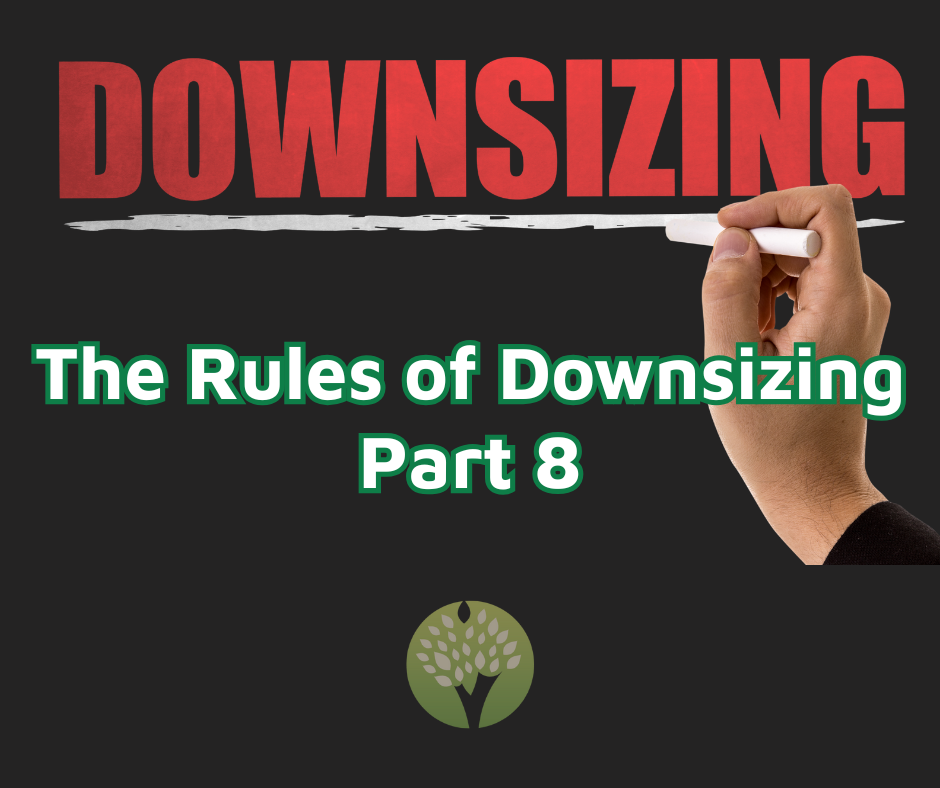
The Rules of Downsizing (Part 8): How to Know When It Is Time to Downsize
One of the most common questions I hear in client meetings is also the one that people find hardest to answer:
“How do you actually know when it is time to downsize?”
It is rarely a single moment. It is usually a slow collection of hints that gradually become harder to ignore. And because downsizing touches identity, memory, comfort, and family, most people delay it for years longer than they intended.
After working with countless families, and based on the insights you shared in your original notes, here is what I tell clients who are trying to work out whether it is time to start the next chapter.
The signs are usually already in the house. You just have to know where to look.
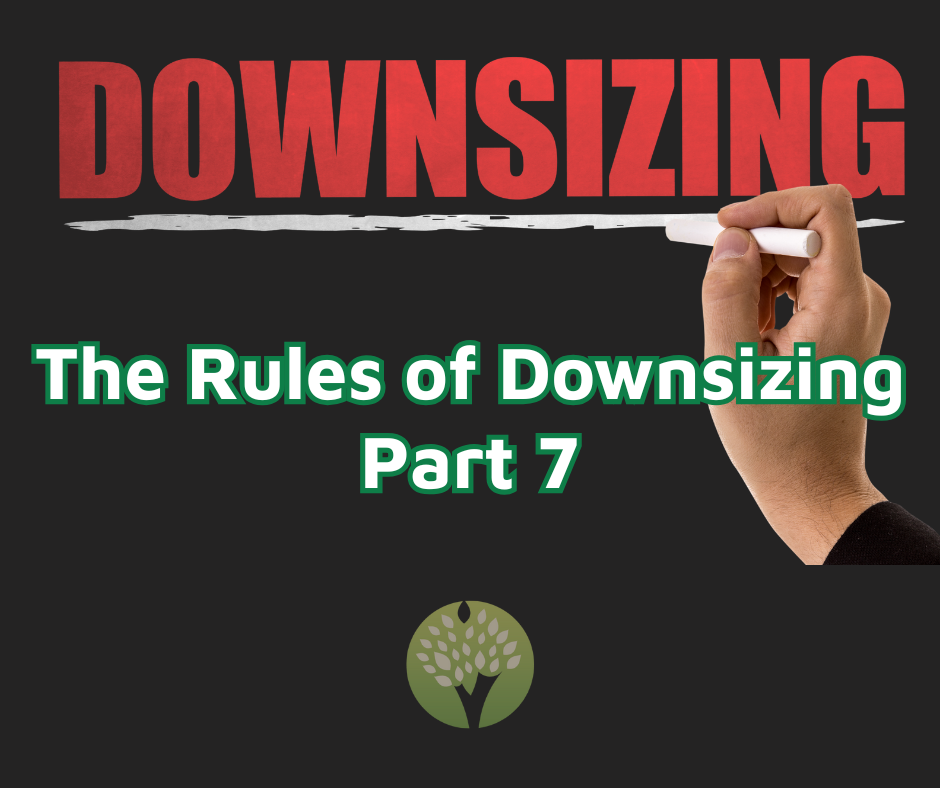
The Rules of Downsizing (Part 7): The Hidden Math Behind “Just One More Bedroom”
I have lost count of how many times I have heard this sentence during a downsizing conversation:
“We just need one more bedroom… just in case.”
Just in case the kids visit.
Just in case the grandkids stay over.
Just in case friends come by.
Just in case someone needs to stay after a late dinner.
But here is the truth I gently share with clients and now with you:
The “just one more bedroom” mindset is one of the biggest financial traps in downsizing.
And it can cost far more than most people realise.
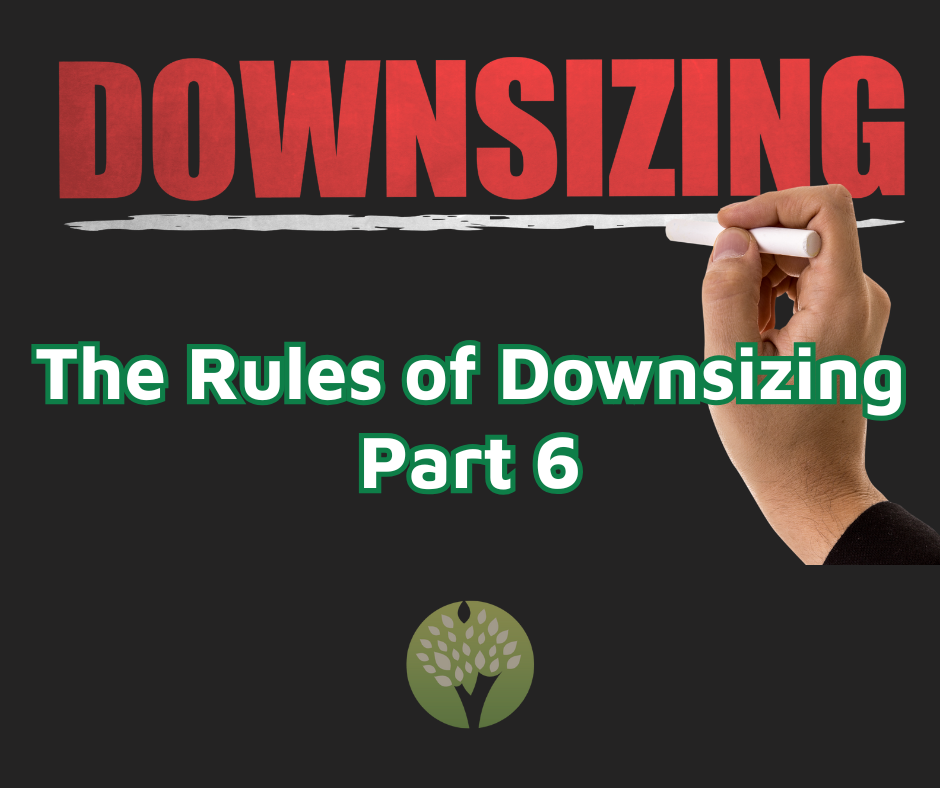
The Rules of Downsizing (Part 6): Downsizing as a Couple — Why One of You Will Struggle More
If you have ever watched a couple try to downsize together, you’ll know something very quickly:
One of them is absolutely ready to move… and the other is absolutely not.
It’s almost universal.
It doesn’t matter whether the couple is in their 60s or 80s, whether they live in a five-bedroom home or a unit, or whether they’ve been talking about downsizing for years.
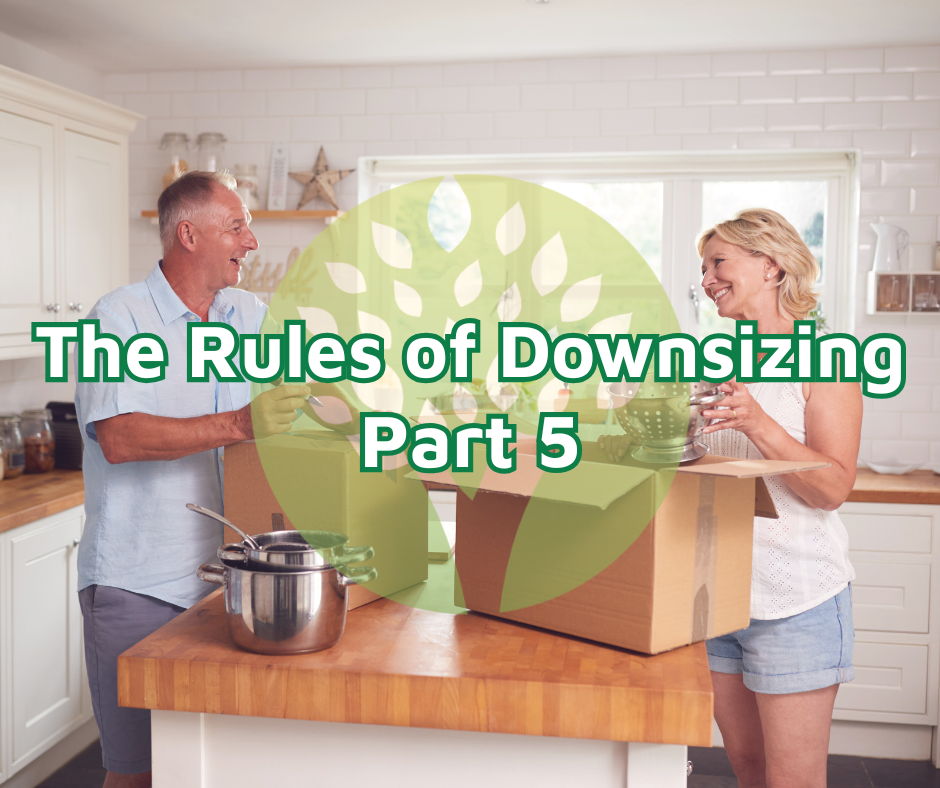
The Rules of Downsizing (Part 5): Building Your “Non-Negotiables” List When Downsizing
If you’ve followed this series so far, you’ll know that downsizing isn’t just about selling one home and buying another. It’s about redesigning the next chapter of your life.
And the truth is, the people who end up happiest after downsizing are the ones who were clear from the start about what really matters to them — their non-negotiables.
Because when emotions, agents, family opinions, and logistics all come into play, it’s surprisingly easy to lose sight of what’s essential.
That’s where your “non-negotiables” list comes in.
It’s not a wish list. It’s not a dream board. It’s your personal rulebook for what you will and will not compromise on as you make this transition.
Let’s talk about how to build it.
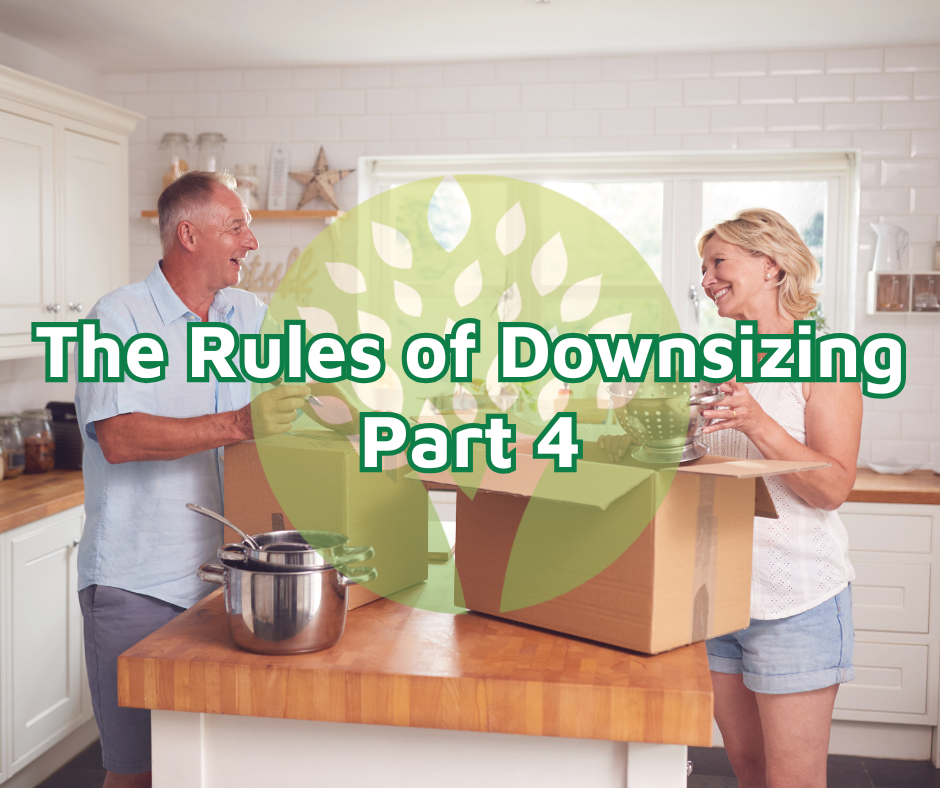
The Rules of Downsizing (Part 4): Avoiding the Most Common Downsizing Mistakes
After working with hundreds of clients over the years, I can tell you that almost everyone makes at least one mistake when downsizing.
It is not because people do not plan or care; it is because downsizing is not just a property move. It is emotional, logistical, and deeply personal. You are not just selling a home; you are changing the rhythm of your life.
But here is the good news: most of the common mistakes are entirely avoidable once you know what to look out for.
So before you take the leap, here are the traps I see most often, and how to avoid them.
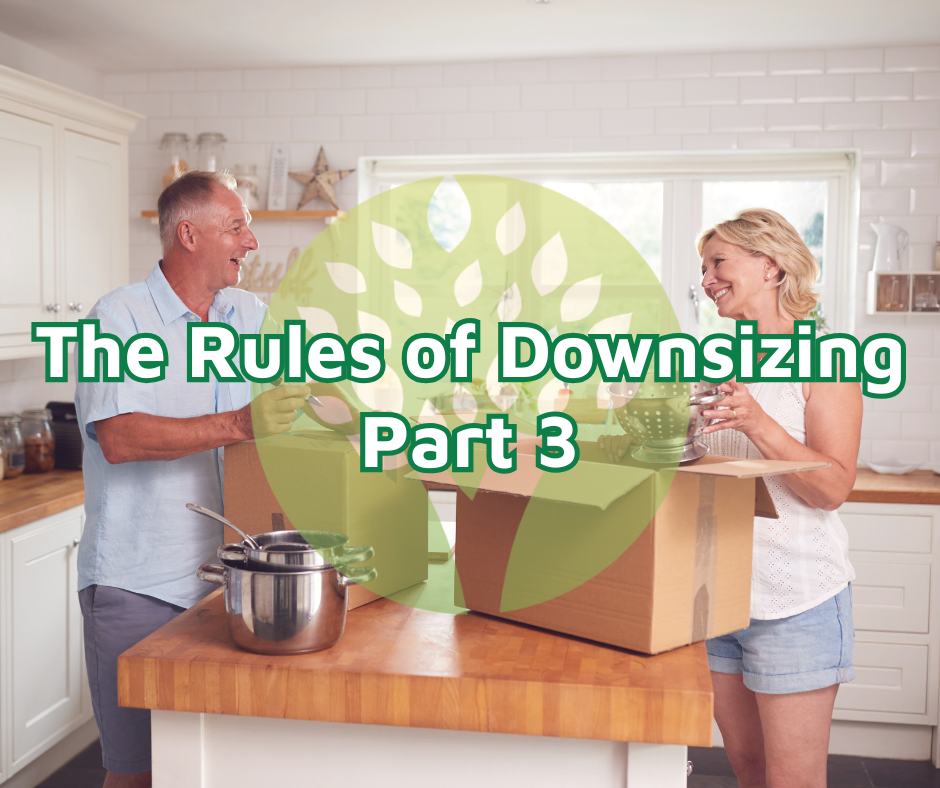
The Rules of Downsizing (Part 3): The Real Cost of Downsizing — What No One Tells You
After years of helping clients through the move, I’ve noticed something surprising — most people underestimate the emotional side of downsizing but overestimate how much they’ll walk away with once the move is done.
They expect a big windfall and a smaller mortgage (or none at all). What they often get is a mix of one-off costs, hidden fees, and lifestyle adjustments they hadn’t planned for.
So let’s talk about the real cost of downsizing, the one that doesn’t always fit neatly on a spreadsheet.
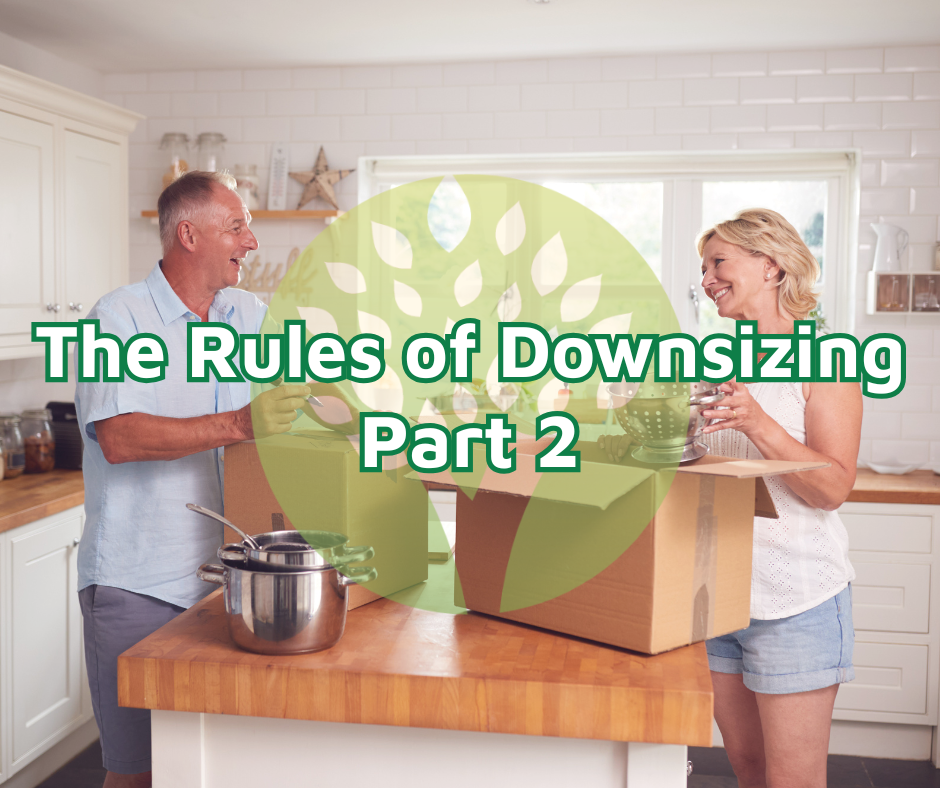
The Rules of Downsizing (Part 2): The Psychology of Letting Go: Why Downsizing Feels So Hard
If you’ve ever stood in a family home surrounded by memories and said, “I just don’t think I can leave this place,” you’re not alone.
For many of us, the hardest part of downsizing isn’t the packing, the selling, or even the buying. It’s the emotional tug of letting go.
And it’s not just nostalgia. It’s something deeper: identity, legacy, belonging.

The Rules of Downsizing (Part 1): Why Downsizing Gets Harder Every Five Years After 70
Introducing the Downsizing Series
Downsizing is one of those topics that everyone talks about eventually, usually over dinner, after mowing the lawn, or during a weekend spent fixing something that broke again.
For many, the decision starts as a quiet thought:
“Maybe it’s time we moved somewhere smaller.”
But that thought often lingers for years before turning into action. The truth is, by the time most people seriously consider downsizing, they’ve already missed the easiest window to do it.
That’s why I’ve put together this new Downsizing Series, a practical, real-world guide to help you understand the emotional, financial, and logistical side of moving on from the family home. Over the next few articles, we’ll explore what really makes downsizing difficult, what it costs (and what it saves), how to know when it’s time, and how to do it without losing your sanity in the process.

Why 2025 Could Be the Turning Point for First Home Buyers Across NSW
For years, owning your first home in New South Wales has felt like chasing a moving target. Between rising prices, limited supply, and steep upfront costs, many young professionals and families have felt that the goalpost kept shifting further away.
But 2025 could be the year things change.
With new government measures expanding stamp duty concessions, increasing property caps, and simplifying access to the First Home Buyer Guarantee Scheme, opportunities are opening up not only in Sydney but also across regional cities and towns throughout NSW.
If you have been waiting for a chance to enter the property market, this might be it, provided you know how to plan strategically and think beyond postcode prestige.
Let’s work together

